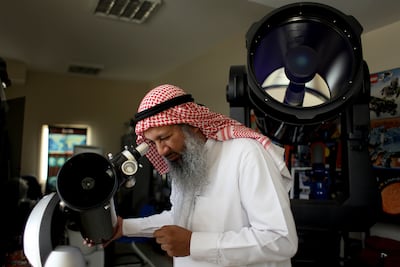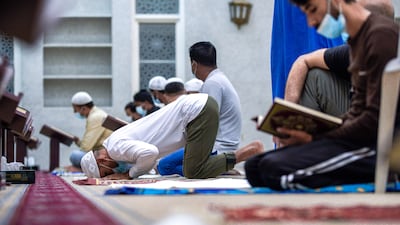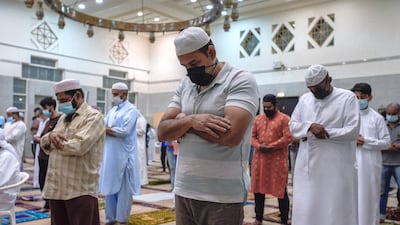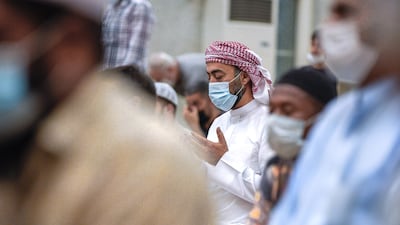In seven years' time, Muslims around the world will observe Ramadan twice in one year – a phenomenon that last occurred in 1997.
Dr Hasan Al Hariri, chief executive of the Dubai Astronomy Group, said those observing the holy month in 2030 will commence their fast twice, first in January and then again in late December.
This is because the Islamic Hijri calendar is based on lunar cycles and it takes 33 years to complete a full cycle.
Dubai Astronomy Group
“The lunar calendar, or a lunar-based year, is 11 days shorter than the solar calendar,” he said.
“So, for example, a full year is 354 days instead of the 365 days marked on the Gregorian calendar.
“Because of that, for each year that passes, Ramadan moves back by 10 or 11 days.
“This phenomenon makes it unique, where in one solar year we will have two Ramadans. The next time this happens will be in 2030.”

Dr Al Hariri said while from a "solar calendar perspective" the holy month will be marked twice in one year, from a lunar calendar standpoint it will still occur only once within a 354-day cycle.
He said the number of days of Muslim fasts during Ramadan will not change in 2030, as it is always a 29 or 30-day period, depending on the moon sighting.
How is the start of the holy month determined?
Ramadan is observed by more than 1.8 billion Muslims around the world and is believed to be the month when the Quran was revealed to the Prophet Mohammed.
The sighting of the Moon signifies the start and the end of Ramadan, the ninth month of the Islamic calendar.
In the days leading up to the holy month, religious authorities in the Middle East scan the night sky for the first glimpse of a crescent moon, heralding the start of Ramadan.
In 2030, it is expected that Ramadan will begin in early January and then again in late December.
The twice-yearly observance is due to happen again in 2063.
A version of this story was first published on April 12, 2022.














